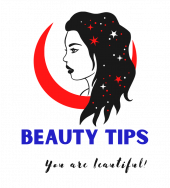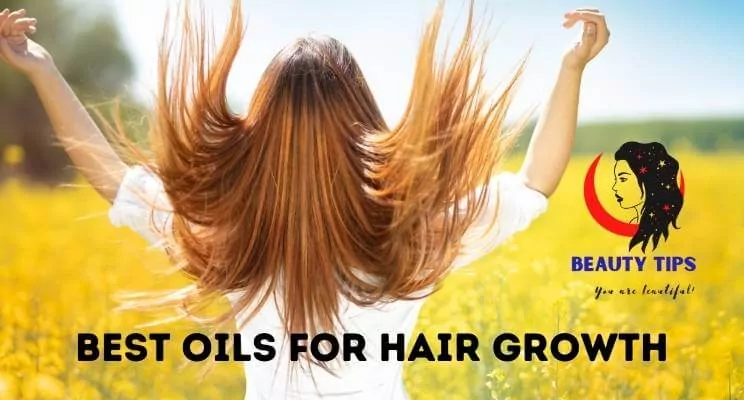We use plants in distillation or evaporation process to extract essentials oils. Although essentials oils are well-known for their fragrance, they also have powerful chemical characteristics that can be good for your body.
Essentials oils are often used in Eastern medicine and alternative medicine due to their effectiveness and low side effects.
Essentials oils have many benefits for hair health. They can improve hair growth and quality. Many oils can improve your hair’s health, growth, shine, and overall health.
Article Contents
Essentials Oils for Hair Growth
1. Lavender Essentials Oil for Hair Growth
Essentials oils are becoming increasingly popular as home remedies. Lavender has been favorite essentials oil.
Lavender essentials oils can be used for many purposes and have a pleasant scent. Special distillation techniques are used to extract the essentials compounds of lavender. This extracted concentration is full of health benefits.
These include pain relief, migraine relief, air freshening, cleaning, and hair care perks. Research suggests it has many benefits for hair and beautiful, healthy locks.
Lavender oil may help accelerate hair growth. One animal study revealed that lavender oil has properties that can increase cell growth and decrease stress. It also stimulated hair growth in mice.
It is also antibacterial and microbiological, which can be beneficial for scalp health.
You can add a few drops of olive oil or coconut oil as per your convenience to the carrier oil. Next, massage the oil onto your scalp. Leave the oil to rest for 10 minutes. After that, you can shampoo your hair as normal. You can easily do this several times per week.
2. Peppermint Essential Oils for Hair Growth
Peppermint oil is the essence extracted from peppermint and made into oil. Some peppermint oils can be stronger than others. Modern distillation techniques are used to create the strongest essentials oils.
Peppermint essentials oils are the most popular type of peppermint oil that is available for purchase. You can use it for beauty, health, and cleaning.
Peppermint oil contains a compound called Menthol. Menthol is responsible for many of the health benefits associated with peppermint oil. Menthol is also responsible for peppermint’s taste, smell, and cooling sensation.
The application of peppermint oils can produce tingling or cold sensations by increasing blood flow. You can use this to promote hair growth during the anagen or growing phase.
One experiment revealed that peppermint cream, when applied to mice, increases the number and depth of hair follicles. It also improves overall hair growth.
Mix 2 drops of peppermint essentials in a carrier oil of your choice. Apply the oil to your scalp. Let it sit on your scalp for 5 minutes. Use shampoo to wash it off.
3. Rosemary Essentials Oils for Hair Growth
Rosemary is both a culinary and healing herb. This woody perennial, is native to Mediterranean regions. It has been used in medicine and food for hundreds of years.
Like peppermint, cinnamon, and rosemary, essentials oils often contain rosemary. Essentials oils are highly concentrated distilled extracts of volatile plant compounds. You can use these oils to clean, cook, beautify, treat, and many other purposes.
Rosemary Essentials oil can be purchased and used as a home remedy. The oil has many health benefits, including anti-inflammation memory enhancement and antioxidants.
There have been many claims in recent years that oil is great for hair growth. It could even prevent Hair Loss. Supporting evidence is the use of rosemary in hair rinses for centuries by Mediterranean cultures.
Rosemary oil is an excellent choice to improve hair thickness and growth.
One study reveals that one can use rosemary oil in hair growth treatments and minoxidil, but it has fewer side effects like scalp itching.
Use a mixture of Rosemary Oil with olive oil or coconut oil and apply to your hair. After letting it sit for 10 minutes, wash it off with shampoo. It is best to do this at least twice per week.
4. Cedar wood Essentials Oils for Hair Growth
Cedar wood essentials oil promotes hair health and balances oil-producing cells. It is also antifungal and antibacterial. Use Cedar wood essentials oil for many conditions that could cause hair loss and dandruff.
Cedar wood extract can be used for the treatment of alopecia.
Mix 2 tablespoon each with carrier oil and a few drops of cedar wood essentials oils. Apply the oil to your scalp. Let it sit for about 10 to 15 minutes before washing it.
Although finding it might not be easy in grocery stores, it may be available in smaller health food shops.
5. Lemongrass Essential oils for Hair Growth
It has a lemon-and-orange-blossom-like smell with a hint of ginger-like spiciness – the scent is unique and something you will always remember.
Lemongrass comes from the Poaceae Family (same family as Citronella) and is also known by the Cymbopogon name. You can get a wonderful lemon-like aroma by crushing the leaves. Lemongrass Essentials oil is made by steam distillation.
Lemongrass Essentials oil can be used as a stimulant in Ayurveda. It has many benefits that include reducing headaches and stimulating hair growth. The oil is most well-known for its strong citrus scent.
Dandruff may be a common condition. It is essentials to maintain healthy hair and prevent flaking.
Use Lemongrass oil to treat dandruff. The oil has been shown to have a significant reduction of dandruff over one week.
For dandruff, it is best to use lemongrass oil every day.
For dandruff, you can add a few drops to shampoo or conditioner. Massage the scalp.
6. Thyme essentials oils
Thyme’s uses as a food seasoning and herb are well-known to most people. Thyme essentials oil is not only a flavor enhancer, but it’s also a source of vitality for your food.
Thyme oil has antifungal and anti-inflammatory properties. It is used to preserve foods, cosmetics, toiletries, and other products. You can use this oil in mouthwash.
Thyme can stimulate your scalp and help to prevent hair fall. Alopecia may also be treated using thyme oil.
Thyme may be stronger than other essentials oils. Mix two drops of thyme oil in two tablespoons of carrier oils before you apply it to your hair. Wash it after letting it dry for ten minutes.
7. Clary sage essentials oils
Clary Sage, also known as Salvia sclarea, is a native plant to the northern Mediterranean Basin. It is used extensively for medicinal purposes as well as to spice things.
You can use many parts of clary sage plants, including the leaves, stems, seeds, and flowers. Aromatherapy uses clary sage essentials oil.
We will be discussing the suggested health benefits and uses for clary sage oils in this article. We will also investigate whether the claims are supported by scientific evidence. We also investigate how the oil is used and its potential side effects.
Clary-sage oil also includes the same linalyl acetate, which makes it so powerful in increasing hair follicles. It can also increase hair strength and make it harder to split.
Use three drops of Clary Sage Oil in combination with your favorite conditioner and one table spoon in carrier oils. Rinse the oil after two minutes if it’s being used every day. It can be left on for no more than 10 minutes if the oil is only used once or twice a week.
8. Tea tree oil essentials
Tea tree oils have strong cleansing, antibacterial, and other antimicrobial capabilities. You can use it topically to stimulate hair and unplug the shafts.
Tea tree oil also very useful for skin related problems.
Tea tree oils are available in different concentrations. You must always follow the manufacturer’s instructions. Some essentials oils are extremely concentrated.
A 2013 study found that minoxidil combined with tea tree essentials oil increased hair growth is still debated.
In a 2015 review, tea trees are used frequently in anti-dandruff formulations.
You can mix tea tree essentials oils into shampoo and conditioner for daily use. It is also possible to combine three drops of tea tree essentials oil with two tablespoons of carrier oil. Let it sit for around 15 minutes before straining.
9. Ylang ylang oil
The sweet, floral, and romantic aroma of Ylang ylang essentials Oil will make you feel happy. It also reduces anger and has a calming effect on your mind. This amazing oil has a stimulating effect that stimulates the scalp, which increases hair luster and promotes growth. Ylang ylang oil has a soothing effect on the skin. Its sebum balancing action makes it useful for extremely dry skin.
Ylang ylang Oil is hair oil that stimulates hair growth. It can be applied to the hair [after dilution]. You should dilute two drops with 10 ml Ancient Living Hydrating hair Oil. Other carrier oils include Jojoba, Almond, and Sesame. You can use Ylang ylang Oil to condition hair naturally and make them shiny and beautiful.
Oily people might skip this one if they have oily skin or hair. However, ylang-ylang oil is perfect for dry scalps.
Lack of oil or sebum can cause hair to become dry and brittle. Ylang-ylang can improve hair texture and help reduce hair fall.
Combine five drops of essentials oils with two tablespoons of oil. You can massage it into your scalp. After that, wrap your head in warm towels. It should sit for about 30 minutes before being rinsed out. It can be used as a shampoo or cream.
10. Bergamot oil
Bergamot is well-known essentials oil for its aromatic properties and to eliminate hair microbes.
Hayag explained that the chemicals in hair care and styling products, along with dandruff and excess sebum, can cause irritation and clog follicles. It can cause serious damage to hair follicles. It can also stop natural hair growth.
Bergamot may make your skin more sensitive to sunlight, so avoid the sun for 12hrs after you use it.
Bergamot essentials oils, which are natural antimicrobial agents, can inhibit the growth of bacteria by ensuring that your hair stays healthy and clean.
The beauty is you can use Bergamot essentials oils on infected areas to prevent scalp infections.
11. Jojoba Oil
Jojoba oils are made from Zizyphus Zijube seeds.
Jojoba oil can be described as an oil-like wax extracted from the seeds and leaves of the jojoba tree.
The jojoba is a shrub from the southwest United States. You can find it in Arizona, California, and Mexico.
Cosmetics and food manufacturing units were using Jojoba oil first in the 1970s. It has many uses, which are too numerous to list. It is used in cosmetics, which is one of its most popular uses. It is found in much different hair, skin, nail, and cosmetic products.
You’ll find Jojoba oil in many beauty and hair care products today.
According to a study, shaved hair with jojoba Oil promoted faster hair growth than shaved without it.



Comments are closed.